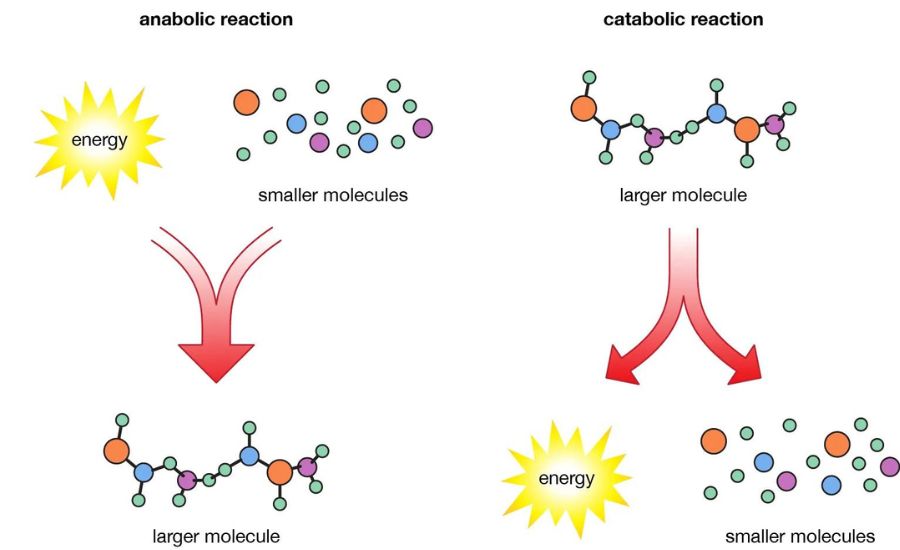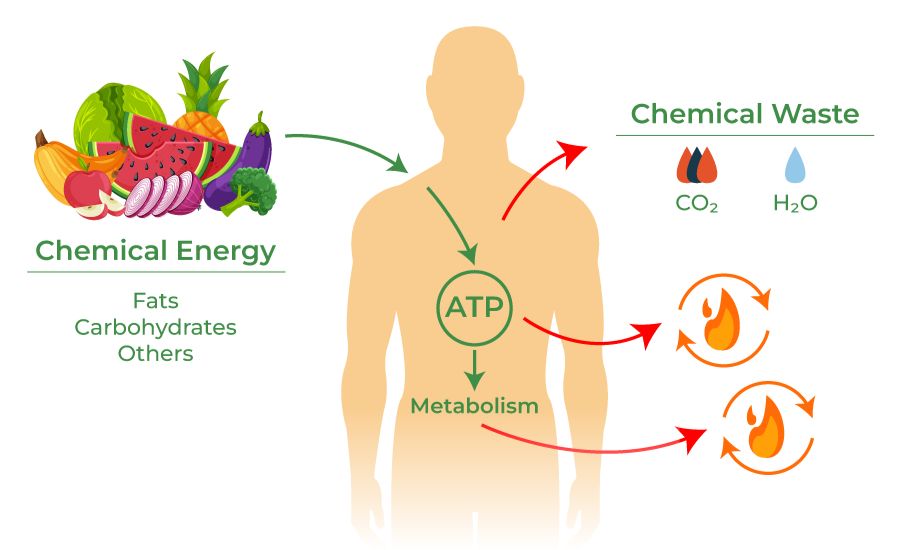6530-20-1 metabolites might sound complicated, but they play an important role in understanding how certain chemicals work inside our bodies. These tiny molecules, known as metabolites, help scientists figure out how a substance is broken down, used, and removed by the body. Learning about 6530-20-1 metabolites can tell us a lot about the safety and effectiveness of new medicines.
When scientists study 6530-20-1 metabolites, they look at how these molecules change as they go through different processes in the body. This knowledge helps them make better and safer drugs. In this blog, we’ll explore what 6530-20-1 metabolites are, why they’re important, and how they help in making medicines that keep us healthy.
What Are 6530-20-1 Metabolites? A Simple Explanation
Understanding 6530-20-1 metabolites might seem tricky at first, but it’s not too hard when we break it down. Metabolites are small molecules that our bodies create when they process chemicals, like medicine. When scientists talk about 6530-20-1 metabolites, they are discussing how this particular chemical changes inside the body.
These metabolites are important because they help scientists know what happens to a substance after it enters the body. For example, when you take medicine, your body doesn’t just use the medicine as it is. Instead, it changes the medicine into different forms, called metabolites. This process is necessary for the body to get rid of the medicine safely.
Next, it’s essential to understand that not all metabolites are the same. Some are harmless, while others might cause side effects. By studying 6530-20-1 metabolites, researchers can figure out which ones are safe and which might be harmful. This information helps them make better, safer medicines.
Finally, when we know more about 6530-20-1 metabolites, we can improve how medicines work in our bodies. Scientists use this knowledge to create drugs that are more effective and have fewer side effects. This way, patients can get the most benefit from their treatments with the least risk.
Why 6530-20-1 Metabolites Are Important in Medicine
Medicine relies on understanding how different substances behave in the body. The study of 6530-20-1 metabolites is crucial because it helps scientists know how a drug will work once it’s inside you. Without this knowledge, it would be hard to predict how effective a medicine will be.
These metabolites tell us a lot about the safety of a drug. For instance, some metabolites might cause unwanted effects, while others might be harmless. By looking at 6530-20-1 metabolites, researchers can determine if a drug is safe for patients or if it needs to be changed.
Moreover, knowing about these metabolites helps in adjusting drug dosages. If a drug is broken down too quickly or too slowly, it might not work as intended. By understanding 6530-20-1 metabolites, doctors can decide the best dose for each patient, making the treatment more effective.
In summary, the study of 6530-20-1 metabolites is key to developing safe and effective medicines. It allows doctors and researchers to understand the full impact of a drug, ensuring that it works well and is safe for everyone who needs it.
How Scientists Study 6530-20-1 Metabolites
Scientists have several methods to study 6530-20-1 metabolites, helping them understand how these molecules work in the body. One of the main tools they use is mass spectrometry, a technique that allows them to see the structure of these metabolites. This tool helps identify what the metabolites look like and how they behave.
Another important method is nuclear magnetic resonance (NMR) spectroscopy. This technique gives scientists detailed information about the molecular structure of 6530-20-1 metabolites. With NMR, researchers can see how the atoms in these metabolites are arranged and how they interact with each other.
High-performance liquid chromatography (HPLC) is also widely used in the study of 6530-20-1 metabolites. HPLC helps separate different metabolites from each other, allowing scientists to study each one individually. By isolating these metabolites, researchers can better understand their specific roles in the body.
These advanced techniques are essential for studying 6530-20-1 metabolites. They provide the detailed information needed to understand how these molecules function and how they affect the body, leading to better and safer medicines.
The Journey of 6530-20-1 Metabolites in the Body

Once a drug enters the body, it begins a journey that involves being broken down into various metabolites, including 6530-20-1 metabolites. This process starts with absorption, where the drug enters the bloodstream and travels to different parts of the body.
Next, the drug is distributed to different organs and tissues. During this phase, 6530-20-1 metabolites start to form as the drug interacts with enzymes in the body. These enzymes break down the drug, converting it into metabolites that can be used or excreted by the body.
After distribution, the body begins to metabolize the drug, creating more 6530-20-1 metabolites. This step is crucial because it determines how long the drug stays active in the body and how effective it is. Finally, the metabolites are excreted from the body, usually through urine or feces.
Understanding the journey of 6530-20-1 metabolites helps scientists know how a drug works and how it should be administered. It also provides insights into how the body processes and eliminates the drug, ensuring that it is safe and effective for use.
Understanding the Safety of 6530-20-1 Metabolites
Safety is a top priority when it comes to medicines, and studying 6530-20-1 metabolites plays a big role in ensuring that a drug is safe to use. These metabolites can sometimes cause side effects or even toxic reactions, so it’s important to understand their impact.
Scientists look at how 6530-20-1 metabolites behave in the body to determine if they might cause any harm. This includes studying how the body processes these metabolites and how long they stay in the system. If a metabolite is found to be toxic, researchers will work to modify the drug to reduce this risk.
Another aspect of safety involves looking at how 6530-20-1 metabolites interact with other drugs. Sometimes, these interactions can cause unexpected side effects, making it important to understand all possible interactions before a drug is approved for use.
By studying the safety of 6530-20-1 metabolites, scientists can create drugs that are not only effective but also safe for patients. This ensures that the benefits of the drug outweigh any potential risks.
How 6530-20-1 Metabolites Help Make Better Medicines
The study of 6530-20-1 metabolites is crucial in the process of making better medicines. These metabolites provide valuable information on how a drug works in the body, allowing scientists to improve its effectiveness and reduce side effects.
By analyzing 6530-20-1 metabolites, researchers can identify which parts of a drug are most effective and which might be causing unwanted effects. This information helps them design new drugs that target specific areas of the body more precisely, leading to better treatments.
In addition, understanding these metabolites allows scientists to make adjustments to the drug’s formula. If a particular metabolite is causing a problem, they can modify the drug to reduce its production, making the medicine safer and more effective.
The insights gained from studying 6530-20-1 metabolites are essential for the development of new medicines. They help ensure that the drugs we take are as effective and safe as possible, improving health outcomes for everyone.
The Role of 6530-20-1 Metabolites in Drug Development
Drug development is a complex process that relies heavily on understanding metabolites like 6530-20-1. These metabolites provide crucial information about how a drug behaves in the body, guiding researchers in designing safer and more effective medicines.
In the early stages of drug development, scientists study 6530-20-1 metabolites to see how the drug is processed by the body. This helps them understand the drug’s potential effects and whether it is likely to be effective in treating a particular condition.
As the drug moves through development, researchers continue to study these metabolites to identify any potential safety concerns. By analyzing how 6530-20-1 metabolites interact with the body, scientists can make necessary adjustments to the drug’s formula, ensuring that it is both safe and effective.
The role of 6530-20-1 metabolites in drug development cannot be overstated. They provide the information needed to create medicines that work well and have minimal side effects, ultimately leading to better treatments for patients.
Key Discoveries About 6530-20-1 Metabolites

Over the years, scientists have made several key discoveries about 6530-20-1 metabolites that have advanced our understanding of how drugs work. These discoveries have been essential in improving the safety and effectiveness of many medicines.
One important discovery is the identification of specific enzymes that interact with 6530-20-1 metabolites. These enzymes play a crucial role in how the body processes the drug, affecting its overall impact. By understanding these interactions, scientists can predict how the drug will behave in different people.
Another significant discovery is how 6530-20-1 metabolites are linked to drug safety. Researchers found that some metabolites could cause side effects or toxic reactions. This has led to changes in how drugs are designed, with a focus on minimizing harmful metabolites.
These key discoveries have been instrumental in shaping modern drug development. They have provided the knowledge needed to create safer, more effective medicines that benefit millions of people around the world.
The Future of Research on 6530-20-1 Metabolites
The study of 6530-20-1 metabolites is an ever-evolving field, with new research continually shedding light on how these molecules work. As technology advances, the future of research on 6530-20-1 metabolites holds exciting possibilities for medicine and science.
One area of future research involves using advanced technologies like artificial intelligence (AI) to analyze 6530-20-1 metabolites. AI can help researchers identify patterns and predict how these metabolites will behave in the body, leading to more personalized and effective treatments.
Another promising area is the development of new drugs that are specifically designed with 6530-20-1 metabolites in mind. By understanding these metabolites better, scientists can create medicines that target specific conditions more accurately, with fewer side effects.
The future of research on 6530-20-1 metabolites is bright, with the potential to revolutionize how we develop and use medicines. As we continue to learn more about these important molecules, we can expect to see significant improvements in healthcare and treatment options.
Simple Ways to Explain 6530-20-1 Metabolites to Kids
Explaining complex scientific concepts like 6530-20-1 metabolites to kids can be challenging, but it’s important to make science accessible to everyone. One simple way to explain these metabolites is by comparing them to how food is digested in the body.
Just like how our bodies break down food into nutrients, 6530-20-1 metabolites are what happens when the body breaks down a medicine. These metabolites are small pieces of the medicine that the body can use or get rid of, making sure the medicine works properly.
Another way to explain it is by using the example of a puzzle. The medicine is like a puzzle, and 6530-20-1 metabolites are the pieces that fit together to make the picture. Scientists study these pieces to understand how the puzzle works, helping them make better medicines.
By using simple comparisons and examples, we can help kids understand the basics of 6530-20-1 metabolites. This not only makes science more fun but also helps them appreciate the importance of medical research.
How 6530-20-1 Metabolites Affect the Body’s Processes
When a drug enters the body, it doesn’t just sit there; it gets to work, interacting with various parts of the body. 6530-20-1 metabolites play a significant role in how these interactions occur, influencing everything from how a drug is absorbed to how it’s eventually excreted.
One of the main ways 6530-20-1 metabolites affect the body is by altering the drug’s activity. As the drug is metabolized, these metabolites can either enhance or reduce the drug’s effects, depending on how they interact with enzymes and other molecules in the body.
Additionally, 6530-20-1 metabolites can affect the duration of the drug’s action. If the metabolites are broken down quickly, the drug may not last as long in the body, reducing its effectiveness. On the other hand, if the metabolites stick around, they can prolong the drug’s effects, which might be beneficial or harmful.
Understanding how 6530-20-1 metabolites affect the body’s processes is crucial for designing effective treatments. By studying these interactions, scientists can create drugs that work better and have fewer side effects, leading to improved health outcomes.
The Science Behind 6530-20-1 Metabolites: Easy to Understand

The science of 6530-20-1 metabolites might sound complicated, but it’s actually quite straightforward when broken down. At its core, it’s about how our bodies handle medicines and how these medicines change as they move through our systems.
When you take a medicine, your body begins to break it down into smaller parts, known as metabolites. These 6530-20-1 metabolites are what’s left after the body has used what it needs from the medicine. The science behind this involves studying how these metabolites are formed, how they move through the body, and how they are eventually excreted.
Scientists use various tools and techniques to study 6530-20-1 metabolites, such as mass spectrometry and chromatography. These tools help them see what the metabolites look like and how they behave. This understanding is essential for making medicines that are both safe and effective.
In essence, the science behind 6530-20-1 metabolites is about making sure that the medicines we take do their job properly without causing harm. It’s a field of study that has a big impact on our health and well-being.
Why Knowing About 6530-20-1 Metabolites Matters for Everyone
You might wonder why learning about 6530-20-1 metabolites is important for everyone. The answer is simple: these metabolites are key to understanding how medicines work, and that knowledge can affect your health directly.
When doctors prescribe medicine, they need to know how it will behave in your body. 6530-20-1 metabolites provide the information they need to make sure the medicine is right for you. This includes knowing how the drug will be broken down, how long it will last in your system, and whether it will cause any side effects.
Furthermore, understanding 6530-20-1 metabolites can help you make informed decisions about your own health. By knowing how your body processes medicine, you can talk to your doctor about the best treatment options for you. This knowledge can lead to better health outcomes and a more personalized approach to your care.
In conclusion, knowing about 6530-20-1 metabolites isn’t just for scientists and doctors. It’s valuable information that can help everyone make better choices about their health and treatment options.
How 6530-20-1 Metabolites Can Improve Our Health
The study of 6530-20-1 metabolites has the potential to greatly improve our health by providing insights into how medicines work in the body. These metabolites help researchers understand which parts of a drug are effective and which might cause problems, leading to better, safer treatments.
One way 6530-20-1 metabolites can improve our health is by helping to reduce side effects. By understanding how these metabolites are formed, scientists can modify drugs to minimize harmful effects while enhancing their beneficial properties. This leads to medicines that are not only more effective but also gentler on the body.
Additionally, 6530-20-1 metabolites play a crucial role in personalized medicine. By studying how different people process these metabolites, doctors can tailor treatments to individual patients, ensuring that each person receives the most effective therapy for their specific needs.
Overall, the study of 6530-20-1 metabolites offers a pathway to better health outcomes for everyone. By unlocking the secrets of these important molecules, we can create more effective, safer medicines that improve the quality of life for patients worldwide.
You May Also Like: Befitnatic-com
The Challenges Scientists Face with 6530-20-1 Metabolites
Studying 6530-20-1 metabolites is not without its challenges. One of the biggest obstacles scientists face is the complexity of these molecules. Metabolites can be tricky to analyze because they are often present in very small amounts and can change quickly in the body.
Another challenge is the variability in how different people process 6530-20-1 metabolites. What works well in one person might not work the same way in another. This variability makes it difficult to predict how a drug will behave across a large population, requiring extensive research and testing.
Moreover, the tools and techniques used to study 6530-20-1 metabolites, such as mass spectrometry and NMR spectroscopy, require a high level of expertise and precision. Any errors in these processes can lead to incorrect conclusions, making the research even more challenging.
Despite these challenges, the study of 6530-20-1 metabolites is essential for advancing medicine. By overcoming these obstacles, scientists can continue to make discoveries that lead to safer, more effective treatments for all.
Advanced Techniques to Study 6530-20-1 Metabolites
The study of 6530-20-1 metabolites relies on advanced techniques that allow scientists to explore these molecules in great detail. These techniques are essential for understanding how metabolites form, how they behave, and how they affect the body.
Mass spectrometry is one of the most important tools used to study 6530-20-1 metabolites. This technique helps scientists identify and measure the metabolites by analyzing their mass and structure. It’s incredibly precise, allowing researchers to detect even the smallest amounts of metabolites in the body.
Another key technique is nuclear magnetic resonance (NMR) spectroscopy. NMR provides detailed information about the molecular structure of 6530-20-1 metabolites, helping scientists understand how these molecules interact with other substances in the body. This information is crucial for predicting how a drug will behave.
High-performance liquid chromatography (HPLC) is also widely used to separate and analyze 6530-20-1 metabolites. HPLC allows researchers to isolate specific metabolites from a complex mixture, making it easier to study them individually.
These advanced techniques are vital for the ongoing study of 6530-20-1 metabolites. They provide the detailed information needed to improve our understanding of these molecules and their impact on health.
6530-20-1 Metabolites: A Key to Safer Drugs
One of the primary goals of studying 6530-20-1 metabolites is to create safer drugs. By understanding how these metabolites form and behave in the body, scientists can identify potential risks and work to minimize them.
For instance, some 6530-20-1 metabolites might cause side effects or toxic reactions. By studying these metabolites, researchers can modify the drug’s formula to reduce these risks, making the medicine safer for patients. This process is crucial in ensuring that the benefits of the drug outweigh any potential harms.
Additionally, understanding 6530-20-1 metabolites helps in predicting how different patients might react to a drug. This knowledge allows doctors to tailor treatments to individual needs, reducing the likelihood of adverse effects and improving patient outcomes.
In conclusion, the study of 6530-20-1 metabolites is key to developing safer drugs. It provides the information needed to create medicines that are effective and have fewer risks, ultimately leading to better health for everyone.
Common Questions About 6530-20-1 Metabolites Answered
Many people have questions about 6530-20-1 metabolites, especially when it comes to how they impact health and medicine. One common question is, “What exactly are 6530-20-1 metabolites?” Simply put, these are the molecules that form when the body breaks down a drug. They play a crucial role in how the drug works and how it’s eliminated from the body.
Another frequent question is, “Are 6530-20-1 metabolites safe?” The answer depends on the specific metabolite. Some are completely harmless, while others might cause side effects. This is why scientists study these metabolites carefully, to ensure that medicines are both effective and safe.
People also ask, “How do scientists study 6530-20-1 metabolites?” Researchers use advanced tools like mass spectrometry and NMR spectroscopy to analyze these molecules. These techniques help them understand the structure and function of metabolites, leading to better and safer medicines.
These are just a few of the common questions about 6530-20-1 metabolites. Understanding these molecules is important for anyone interested in how medicines work and how they can affect our health.
Exploring the Impact of 6530-20-1 Metabolites on Medicine

The impact of 6530-20-1 metabolites on medicine is profound, influencing everything from how drugs are developed to how they are prescribed. These metabolites provide essential insights into how a drug works, helping scientists create better treatments.
One of the biggest impacts of 6530-20-1 metabolites is on drug safety. By studying these metabolites, researchers can identify potential side effects and work to minimize them, making drugs safer for patients. This is a critical step in the drug development process, ensuring that new medicines are both effective and safe.
Moreover, 6530-20-1 metabolites play a significant role in personalized medicine. By understanding how different people process these metabolites, doctors can tailor treatments to individual needs, improving outcomes and reducing the risk of side effects.
In summary, the study of 6530-20-1 metabolites has a significant impact on medicine. It helps create safer, more effective treatments and allows for a more personalized approach to healthcare, benefiting patients around the world.
Why 6530-20-1 Metabolites Are a Hot Topic in Science Today
6530-20-1 metabolites have become a hot topic in science because of their crucial role in drug development and personalized medicine. As researchers continue to uncover new information about these metabolites, they are finding new ways to improve the safety and effectiveness of medicines.
One reason 6530-20-1 metabolites are so important is that they help scientists understand how drugs work at a molecular level. This knowledge is essential for designing drugs that target specific conditions more effectively, with fewer side effects.
Another reason these metabolites are gaining attention is their potential in personalized medicine. By studying how different people process 6530-20-1 metabolites, doctors can create customized treatment plans that are tailored to individual patients, leading to better health outcomes.
In conclusion, 6530-20-1 metabolites are a hot topic in science because they offer the potential to revolutionize medicine. As research continues, we can expect to see even more advancements that improve the quality of healthcare for everyone.
Conclusion
Understanding 6530-20-1 metabolites is like unlocking a secret that helps make medicines work better and safer. These tiny molecules tell us a lot about how our bodies handle drugs, from how they break them down to how they get rid of them. By learning about these metabolites, scientists can create medicines that help us feel better without causing harm.
In the end, knowing about 6530-20-1 metabolites isn’t just for scientists—it’s important for everyone. It helps doctors give us the right medicine in the right amount, making sure we stay healthy. As research continues, we can look forward to even safer and more effective treatments, all thanks to the study of these important metabolites.
Read Next: Fmybrainsout





